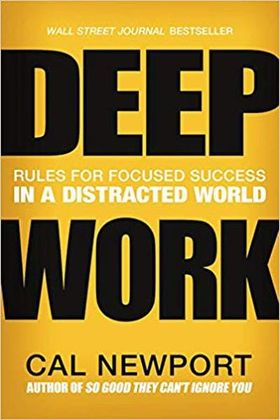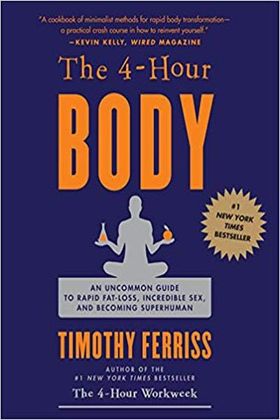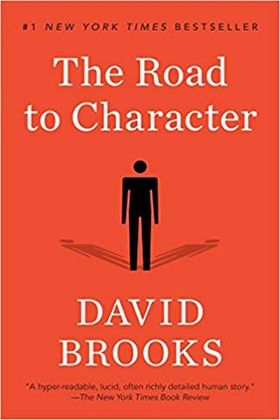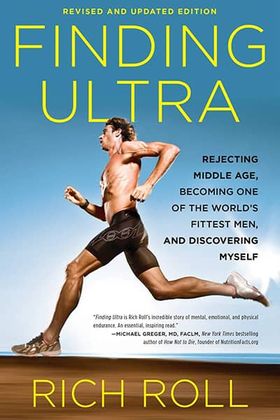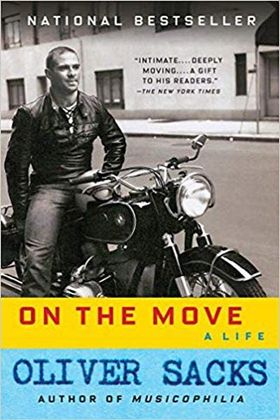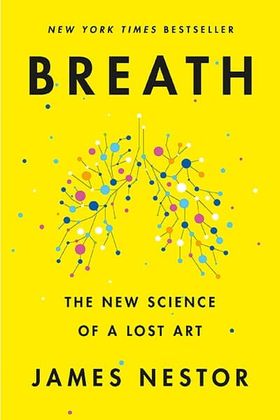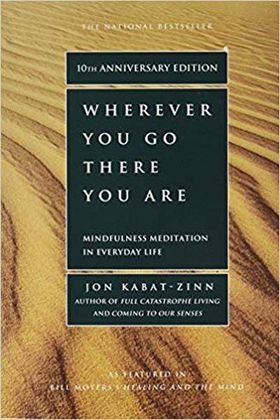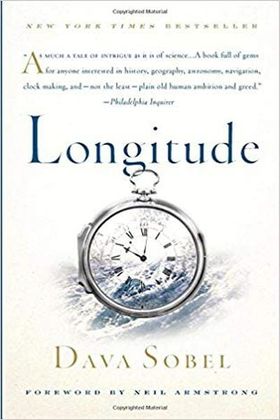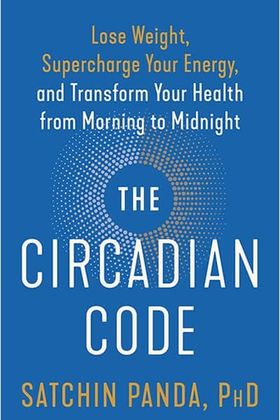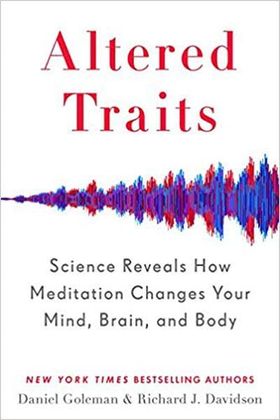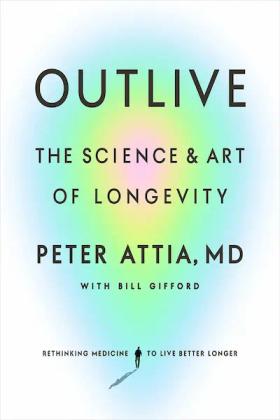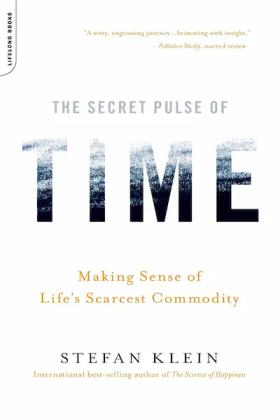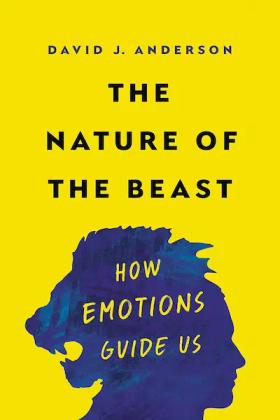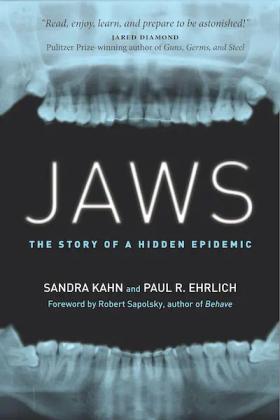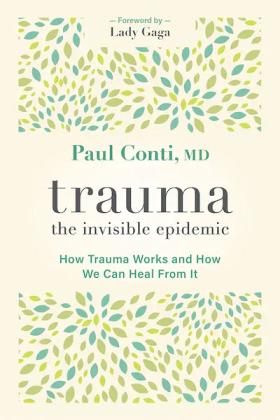Andrew Huberman's Daily Routine
Andrew Huberman is a neuroscientist and professor at Stanford University, as well as the CEO of Huberman Labs. He has published research on various aspects of the brain, including vision and glial cells. Huberman has received awards for his work and frequently speaks on neuroscience topics.
View Andrew Huberman's Full Supplement List on Amazon
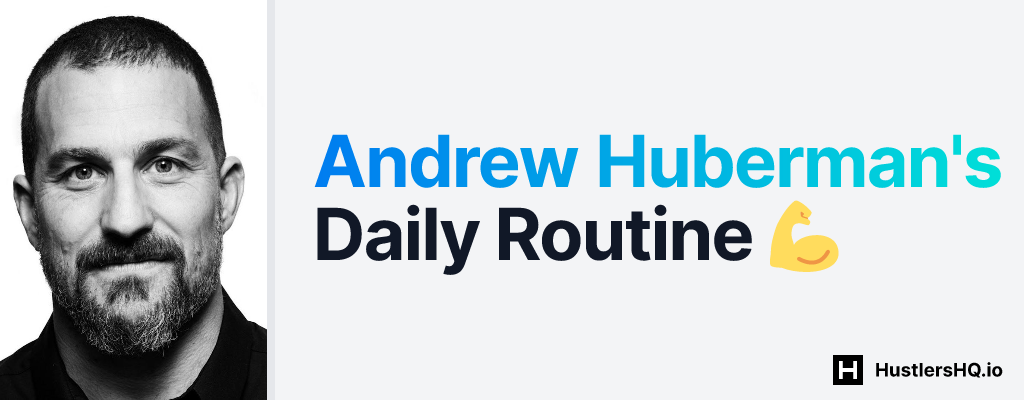
~6:00am
Wake-up - ~6:00am
Wakes up naturally between 5:30 am and 6:30 am. He does not use an alarm.
"Waking up early, usually around 5:00 or 6:00 am helps you feel more energized and focused throughout the day. Additionally, early mornings are beneficial for regulating circadian rhythms, which can help to improve sleep quality."
Dr. Huberman~6:00am
Morning Hydration - ~6:00am
- 💧 Drink 2 glasses of water.
- Drinks AG1 by Athletic Greens.
- Drinks LMNT.
“I’ve been using AG1 since 2012 because it’s the simplest, most straightforward way for me to get my basis of important vitamins, minerals, and probiotics.
I should mention the Athletic Greens is delicious. I love the way it tastes. I mix mine with some water and a little bit of lemon or lime juice.
Whenever somebody has asked me what's the one supplement they should take, I always answer AG1 by Athletic Greens."
6:00am
Yoga Nidra - 6:00am
If you wake up not fully rested, Yoga Nidra can help you achieve a sleep-like state and replenishes dopamine, reduces cortisol, reduces total sleep need.
10 min Yoga Nidra 35 min Yoga Nidra
Dr. Huberman on Yoga Nidra (Non-Sleep Deep Rest)
“There are some interesting data published showing that these yoga nidra meditations, if you will, can upregulate some of the neurotransmitters in the brain, including dopamine, that make you prepared for action.”
“There was this lore in the yoga nidra community that 30 minutes of yoga nidra is equivalent to 4 hours of sleep. Frankly, I don’t think there’s any evidence for that specific statement. But when I started doing this practice and exploring it, I found that I would come out of a 30-minute yoga nidra session feeling like I slept 5, 6 hours or longer.”
Read Dr. Huberman's Extensive coverage of NSDR and sleep optimization here.Yoga Nidra and it's benefits
Yoga nidra, also known as "yogic sleep," is a type of relaxation practice involving guided body scans and visualizations. It aims to bring the mind and body into a deep relaxation state akin to the state between wakefulness and sleep. Some studies suggest that it may improve sleep quality, reduce insomnia symptoms, and alleviate stress and anxiety. Despite its potential benefits, it's crucial to remember that yoga nidra should not replace medical treatment for sleep disorders.
6:45am
Sun Exposure - 6:45am
2-10 minutes of sunlight exposure while walking for optic flow
Optional: Use an artificial light if the sun has not yet arisen. Get sunlight when it is available.
Dr. Andrew Huberman on the Benefits of Morning Sunlight
“View morning sunlight!” is one of my common refrains. Viewing sunlight within the first hours of waking (as soon as you can, even if through cloud cover) increases early-day cortisol release (the ideal time for elevated cortisol) and prepares the body for sleep later that night. A morning spike in cortisol will also positively influence your immune system, metabolism and ability to focus during the day.
"The single best thing you can do for your sleep your energy your mood your wakefulness your metabolism is to get natural light in your eyes early in the day. This is grounded in the core of our physiology. There are literally hundreds, if not thousands, of quality peer-reviewed papers showing that light viewing early in the day is the most powerful stimulus for wakefulness throughout the day and it has a powerful, positive impact on your ability to fall and stay asleep at night. So this is really the foundational power tool for ensuring a great night's sleep and for feeling more awake during the day."
On Alternative Lighting
“If you wake up before the sun rises, flip on as many lights as you can in your space if you want to be awake in your artificial light environment. And then, once the sun is out, go outside.”
On Optic Flow
“There are now at least half a dozen quality papers published in quality peer-reviewed journals that show that forward ambulation — walking or biking or running — and generating optic flow in particular has this incredible property of lowering activity in the amygdala and thereby reducing levels of anxiety.”7:00am
Cold Exposure - 7:00am
Benefits of Deliberate Cold Exposure
Deliberate cold exposure offers a range of benefits for both the brain and body. By following proper protocols, individuals can experience increased energy, focus, mood, resilience, metabolism, physical recovery, and a stronger mind-body connection.
Energy and Focus: Cold exposure triggers the release of epinephrine and norepinephrine, enhancing alertness, focus, and providing a boost of energy that can be applied to mental and physical activities.
7:30am
Workout - 7:30am
Sunday – Endurance;
Monday – Legs;
Tuesday – Heat/cold cycling;
Wednesday – Torso push/pull;
Thursday – High effort, short cardio;
Friday – High-intensity interval training
While it's important to customize the routine to fit your personal needs, be sure to maintain the overall goals of the schedule. The specific days of each workout can be adjusted, but it's important to maintain proper spacing between exercises.10:00am
Morning Caffeine - 10:00am
Delays caffeine or tea Intake by 2 hours after waking for adenosine regulation.
- Prefers Yerba Mate over coffee.
- Prioritizes deep thinking tasks early in morning.
Dr. Andrew Huberman on the Benefits of Delaying Morning Caffeine
"I highly recommend that everybody delay their caffeine intake for 90 to 120 minutes after waking. However painful it may be to eventually arrive at that 90 to 120 minutes after waking, you want, and I encourage you, to clear out whatever residual adenosine is circulating in your system in that first 90 to 120 minutes of the day. Get that sunlight exposure, get some movement to wake up, and then, and only then, start to ingest caffeine because what you'll do if you delay caffeine intake until 90 to 120 minutes after waking is you will avoid the so-called afternoon crash"
"And if you drink caffeine at any point throughout the day, really try and avoid any caffeine, certainly avoid drinking more than a hundred milligrams of caffeine after 4:00 p.m and probably even better to limit your last caffeine intake to 3:00 p.m. or even 2:00 p.m"
Dr. Andrew Huberman on Morning Caffeine
"If I'm going to do a resistance training workout, which is what I do three times a week, I will drink yerba mate. I usually brew my own. I'm a big fan of yerba mate because of the caffeine source. It also has a different caffeine-like substance in it. It also is not as dehydrating as coffee, but I also just really like it. But people should avoid the smoked varieties. The smoked varieties can be carcinogenic. "
1:00pm
First Meal - 1:00pm
- Practices Intermittent Fasting. Usually fasts for 12-16 hours, and has his first meal early afternoon.
- He usually eats a low-carb meal with meat and vegetables, but may add carbs like rice or oatmeal after intense exercise.
Potential Benefits of Intermittent Fasting
Intermittent fasting is a dietary pattern in which you cycle between periods of eating and fasting. There are many different forms of intermittent fasting, but one common method involves eating all of your daily calories within a 6-8 hour window and fasting for the remaining 14-16 hours. Some people believe that intermittent fasting has a number of potential health benefits, including weight loss, improved insulin sensitivity, and reduced inflammation. It may also help to improve heart health, increase longevity, and reduce the risk of chronic diseases like type 2 diabetes and certain types of cancer.
Dr. Huberman's in-depth podcast on Fasting and Time-restricted Feeding.Athletic Greens
Athletic Greens is a dietary supplement that contains a blend of ingredients that the manufacturer claims to have a range of health benefits, such as improved energy levels and athletic performance, support for immune health, improved digestion and gut health, improved skin health, and support for mental clarity and cognitive function.
"I’ve been using Athletic Greens since 2012 because it’s the simplest, most straightforward way for me to get my basis of important vitamins, minerals, and probiotics."
- Andrew Huberman3:00pm
Afternoon Yoga Nidra - 3:00pm
Optional: If Dr. Huberman is still feeling unrested he will do another 10-30 minute Yoga Nidra session.
6:30pm
Evening Cardio - 6:30pm
According to Dr. Huberman, it may be more beneficial to do cardio workouts in the evening instead of weight training. However, he emphasizes that it's important to do what feels comfortable for you. He also mentions that there could be some advantages to doing a morning workout and saving cardio for the evening.
7:00pm
Evening Meal - 7:00pm
- Eats 3-4 hours before bedtime
- Eats carbs for replenishing glycogen levels and helps with sleep
- Avoids eating too much meat before bed to avoid long gastric clearance.
Dr. Huberman's approach to his evening meal
Andrew focuses on starch for his last meal of the day, as it helps him sleep better. Starchy carbohydrates like pasta, rice, potatoes, etc. can decrease the time it takes to fall asleep and increase serotonin and tryptophan levels. Serotonin is a mood stabilizer that promotes good sleep quality, and tryptophan is an essential amino acid that is a precursor for several hormones, including melatonin and serotonin. Andrew also includes vegetables and sometimes lean protein like tuna or salmon, and if he's not training as much, he reduces the carbohydrate intake by half. He notes that eating too much meat before sleep can negatively affect his sleep quality and that meat has a long gastric clearance time, which may contribute to poorer sleep.
9:30pm
Dims Lighting - 9:30pm
"Avoid viewing bright lights—especially bright overhead lights between 10 pm and 4 am.
Here is a simple rule: only use as much artificial lighting as is necessary for you to remain and move about safely at night. Blue blockers can help a bit at night but still dim the lights. Viewing bright lights of all colors are a problem for your circadian system. Candlelight and moonlight are fine."Detriments of Blue Light in the evening
Exposure to blue light, particularly in the evening hours, can have negative effects on sleep. Blue light is a type of light with a short wavelength that is found in natural sunlight. It has been shown to suppress the production of the hormone melatonin, which is involved in the body's sleep-wake cycle. When we are exposed to blue light at night, it can disrupt the body's natural sleep-wake cycle, making it more difficult to fall asleep and stay asleep.
Research has shown that exposure to blue light in the evening can disrupt the body's natural circadian rhythms, causing a delay in the release of melatonin and making it harder to fall asleep. In addition, blue light has been found to reduce the amount of deep sleep that people get, which is important for physical and mental restoration.
To help minimize the negative effects of blue light on sleep, it is recommended to reduce exposure to screens (such as phones, tablets, and computers) in the hours leading up to bedtime, and to use screens that have a blue light filter or to use blue light blocking glasses. It is also recommended to avoid bright lights and to use dimmer lighting in the evenings, as this can help to promote the production of melatonin and improve sleep quality.10:00pm
Reading - 10:00pm
Andrew Huberman's Reading List
Benefits of Reading
Reading books can provide a number of benefits for both your mental and physical health. For one, reading can help to improve your cognitive function, as it stimulates your brain and enhances your ability to process and retain information. It can also help to improve your vocabulary and language skills, and can even increase your emotional intelligence. Reading can also provide a form of mental stimulation that can help to prevent memory loss and cognitive decline, especially as you age. In addition to these mental benefits, reading can also be a relaxing and enjoyable activity that can help to reduce stress and improve your overall sense of well-being.
10:30pm
Sleep - 10:30pm
According to Dr. Huberman sleep is the best nootropic, stress relief, trauma release, immune booster, hormone augmentation, and emotional stabilizer. It is no surprise his entire routine is geared towards optimizing it.
Benefits of Getting a good sleep
Getting a good night's sleep is essential for maintaining both physical and mental health. Sleep helps to restore and repair the body, and it is essential for supporting immune function, regulating hormone levels, and maintaining a healthy metabolism. Sleep is also important for supporting cognitive function, as it helps to consolidate memories and improve concentration and focus. Additionally, getting enough sleep can help to reduce the risk of chronic diseases like obesity, diabetes, and heart disease, and it can also improve mood and promote feelings of happiness and well-being. Overall, getting a good night's sleep is essential for maintaining good health and supporting overall well-being.
